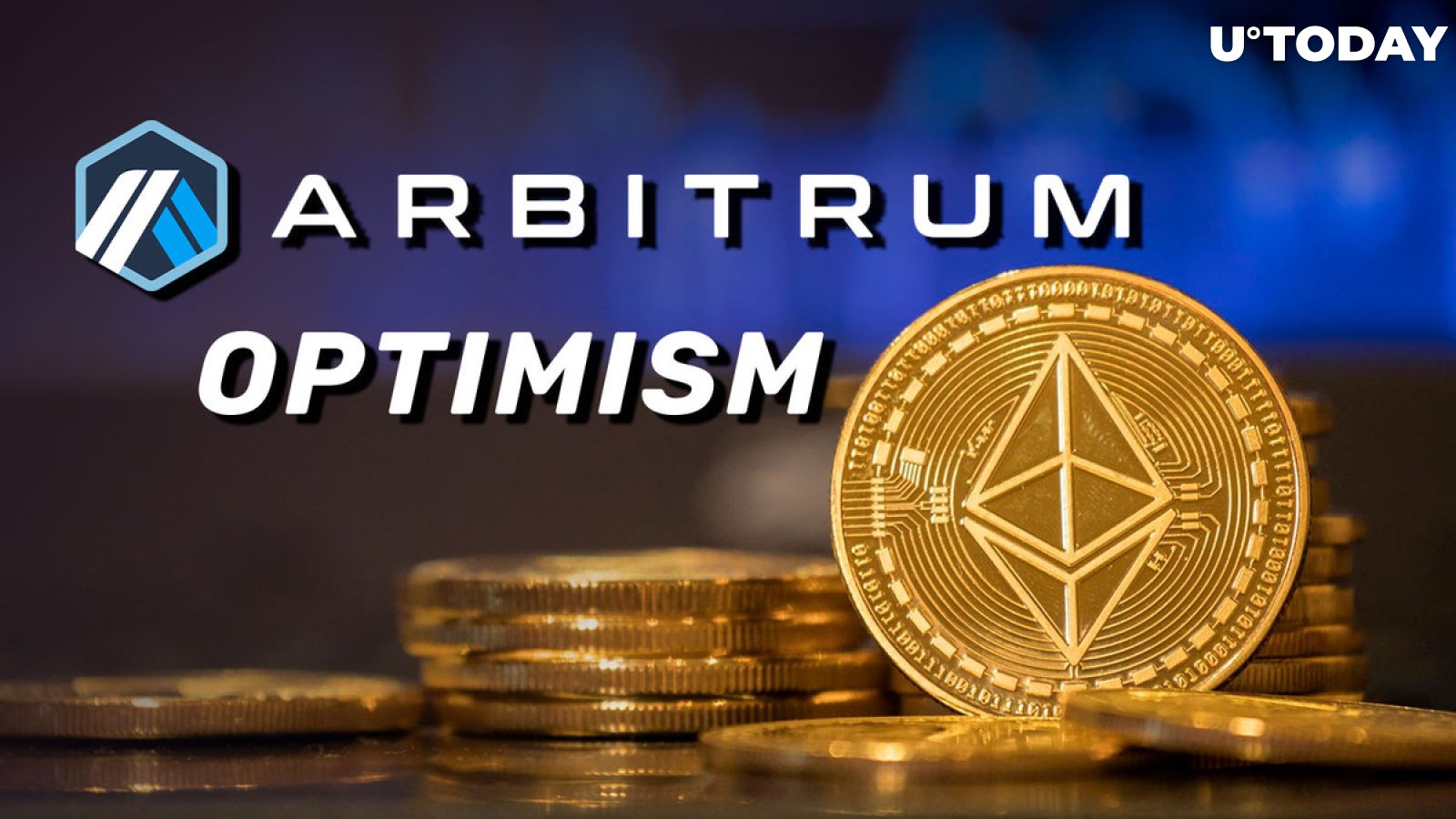Ethereum (ETH) Hits 400,000 Daily Active Users, Arbitrum, Optimism Follow

Disclaimer: The opinions expressed by our writers are their own and do not represent the views of U.Today. The financial and market information provided on U.Today is intended for informational purposes only. U.Today is not liable for any financial losses incurred while trading cryptocurrencies. Conduct your own research by contacting financial experts before making any investment decisions. We believe that all content is accurate as of the date of publication, but certain offers mentioned may no longer be available.
Ethereum (ETH), the second-largest cryptocurrency and the world’s leading smart contract platform, has achieved a significant milestone, surpassing 400,000 daily active users. This surge in user activity comes as decentralized finance (DeFi) applications, non-fungible tokens (NFTs) and other decentralized applications (dApps) continue to gain traction within the Ethereum ecosystem.
Over the past few years, various solutions have emerged to help the Ethereum network process more transactions in aggregate. Roll-ups are blockchains that execute transactions externally to the Ethereum blockchain, utilizing a separate execution environment. They aggregate batches of transactions occurring on the rollup and anchor them into a single transaction, which is then submitted to, and verified by, the Ethereum blockchain.
According to Glassnode, rollup solutions have gained popularity over the past two years, with the two major scaling solutions, Arbitrum and Optimism, seeing usage increase by up to 150,000 and 100,000 daily active addresses, respectively. Meanwhile, Ethereum’s mainnet still has the largest activity count, with more than 400,000 active addresses per day.
On Wednesday, March 13, Ethereum underwent another major update. The Cancun-Deneb (Dencun) upgrade, introduced significant changes to Ethereum’s rollup infrastructure. The upgrade also implements several modifications to Ethereum’s staking pool to improve node communication and network stability.
The major feature of the Dencun upgrade is to create additional data storage capacity on the Ethereum network. It introduces a new type of transaction capable of carrying large data packets, which are referred to as blobs.
With the Dencun upgrade, the separation of layer-2 anchoring transactions into blobs is largely in line with improving user experience, reducing fees and aligned with the rollup-centric roadmap of the Ethereum Foundation. The hope is that lower transaction fees will encourage more users to move onto roll-ups, thereby increasing the aggregate Ethereum-based transaction throughput.